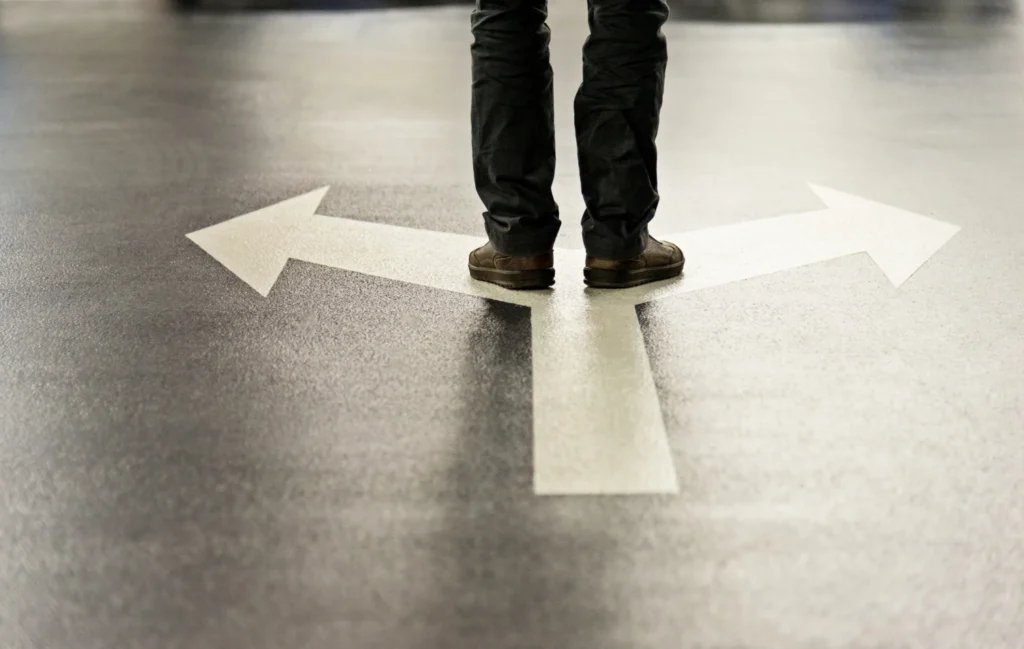Have you ever ever decided, solely to instantly query whether or not it was the fitting one? I simply forgot learn how to spell the phrase “Cheers” after together with it in a congratulatory assertion in a put up on-line at present. Then I mentioned to myself why do I doubt if the spelling was fallacious or appropriate? Second-guessing is brought on by concern of failure, low self-confidence, overthinking, perfectionism, and social comparability. It usually stems from nervousness about making the fallacious selection.
Whereas a point of self-reflection might be helpful, extreme second-guessing can result in nervousness, indecision, and even missed alternatives.
So why can we do it? And the way can we handle it successfully?
Why Do You Second-Guess Your self?
Contents
Don’t say no, I’m assured in case you are studying this, you may need looked for it.
At its core, second-guessing is a protection mechanism meant to assist us make considerate decisions. Nevertheless, when taken to the acute, it may well maintain you again. Listed below are among the key causes we are inclined to second-guess our selections, consider me, I associated to those causes as properly.
1. Concern of Failure
One of many largest drivers of second-guessing is the concern of constructing a mistake. When the stakes are excessive, we fear concerning the penalties of a fallacious determination, which might result in hesitation and self-doubt.
2. Low Self-Esteem
Individuals who battle with self-worth usually query their judgment. They might attribute detrimental outcomes to non-public failings slightly than exterior components, making them extra vulnerable to second-guessing.
3. Perfectionism
The need to make flawless decisions might be paralyzing. Perfectionists are inclined to overanalyze their selections, always trying to find an choice that’s “higher,” even when their preliminary selection is already good.
4. Social Comparability
After we examine our selections to these of others—particularly in an age of social media—uncertainty creeps in. Seeing another person make a special selection could make us doubt whether or not we’ve chosen the fitting path.
5. Overthinking
Replaying completely different situations in our minds could make us really feel trapped in a loop of doubt. The extra we analyze, the tougher it turns into to belief our preliminary judgment.
6. Lack of Readability
When info is incomplete or ambiguous, it naturally results in uncertainty. With out clear information or pointers, it’s simple to second-guess our decisions.
When Can Second-Guessing Be Useful?
Not all second-guessing is unhealthy. The truth is, some degree of self-reflection might be useful in making well-rounded selections. Right here’s when it may well work in your favor:
1. Crucial Reflection
A reasonable quantity of second-guessing permits us to determine potential flaws in our selections. It provides us an opportunity to course-correct earlier than it’s too late.
2. Contemplating Various Views
Taking the time to weigh completely different choices may also help us make knowledgeable decisions slightly than appearing on impulse. It encourages vital considering and problem-solving.
The way to Handle Extreme Second-Guessing
Whereas some second-guessing is helpful, an excessive amount of of it may be paralyzing. Right here’s learn how to preserve it in test:
1. Establish the Supply
Understanding why you second-guess your self is step one to managing it. Is it rooted in concern? Perfectionism? A lack of understanding? Figuring out triggers may also help you break the cycle.
2. Concentrate on the Resolution-Making Course of
As a substitute of fixating on whether or not your selection was “excellent,” remind your self of the components you thought-about when making it. When you made a considerate determination primarily based on one of the best info out there, belief it.
3. Construct Self-Confidence
Usually remind your self of previous successes and the instances when your selections turned out properly. Self-affirmations and optimistic reinforcement can strengthen your perception in your individual judgment.
4. Search Assist
If second-guessing is affecting your well-being, speaking to a trusted pal, mentor, or therapist can present reassurance and a contemporary perspective. Generally, an outdoor opinion may also help you see that your selection is greater than affordable.
Ultimate Ideas
Second-guessing is a pure a part of decision-making, however when it turns into extreme, it may well hinder progress and create pointless stress. By understanding its root causes and adopting methods to handle it, we will transfer ahead with confidence and readability.
So the subsequent time you end up doubting a choice, take a step again, belief your self, and remind your self that no selection is ever fully risk-free—however progress comes from studying, not from concern. Keep tuned to Age and Wealth
